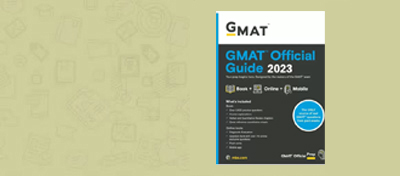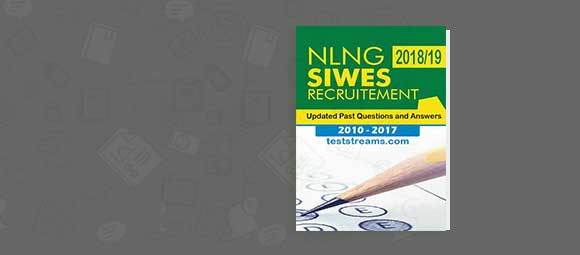ABInBev Aptitude Test Preparation Tips and Past Questions Guide Will help you to Unlock Success in Your ABInBev Aptitude Test, With the right preparation, you can transform this challenge into a remarkable opportunity. Our comprehensive ABInBev Aptitude Test Preparation Tips and Past Questions Guide is specifically designed to equip you with the tools and knowledge you need to excel.
Understanding the ABInBev Aptitude Test:
The ABInBev aptitude test is a crucial step in the recruitment process, designed to assess your problem-solving skills, analytical ability, and critical thinking. It’s more than just a test; it’s a gateway to opportunities in one of the world’s leading beverage companies in the world.
About ABInBev?
ABInBev, is a multinational beverage and brewing holding company headquartered in Belgium. Famous for drinks such as Corona and Stella Artois, ABInBev became the world’s largest brewing company after Anheuser-Busch acquired InBev in 2008. It’s the world’s largest beer brewer by both volume and revenue, operating more than 600 beer brands in 150 countries.
How This Guide Can Transform Your Test Experience?
- Boosted Confidence: Familiarizing yourself with the types of questions and the format of the test is crucial in reducing test anxiety and building confidence.
- Efficient Preparation: With our guide, you can focus your efforts on the most impactful topics and question types, thus optimizing your study time.
- Adaptability to Your Schedule: Whether you prefer studying early in the morning or late at night, our guide is designed to be accessible whenever you need it, allowing you to study at your own pace and on your own terms.
The Reasoning of Using ABInBev Aptitude Test Past Question and Answer
- You Will Get Used to the Test Structure and Language: You are most likely familiar with the vocabulary you learned, but you should learn the language they use in exams based on past papers. This will lessen your stress because you will know how the test will be laid out. Once you have done a few exams papers, you will know how the questions will be written and basically the entire layout of the test. This will help you prepare and boost your confidence before the exams.
- Tests Your Knowledge: Studying is normally comprised of memorizing dates, facts, formulas, and quotes, but testing yourself is the best way to check if you have retained all of that information. Answering past exam papers helps you determine which topics you have mastered and figure out what you must focus on.
- Time Management: It is best to practice how long you will need to complete the exam by timing yourself while answering past exam papers. You should be in a quiet area where no one will disturb you. The good thing about practicing this way is that you will know how long it will take you to answer each question.
- Helps You Apply Your Knowledge: Reading, memorizing, and understanding your notes is only helpful to a certain extent. The exams test what you already know, and how you apply and understand that knowledge needs to be demonstrated. Your next exams can test you in almost the same way and the assessment materials are provided by the school. Exams require you to solve problems, understand information, and perform arguments so it would be excellent to use past exam papers to practice what you have learned.
- Analyses Your Answers: After you finished answering a practice exam paper, you can check your own work and use the marking scheme to analyses your performance. When you do this, you will see which topics you have improved on and mastered as well as areas that you need to revise again. This way, you can work on your time management and keep practicing before the exam day. You will become more confident in answering questions because you know how long it will take you to answer each question. These are the benefits of how past exam papers can help you study for your exams.
GET YOUR UPDATE STUDY PACK— BUY NOW!
ABInBev Hiring Process?
Online Application: Applications are made online and require candidates to provide their contact details, education and work experience. They are also required to complete a few screening questions, which are used to ensure that the candidate is suited to their selected role. You will not be asked any complex questions at this stage.
Online Assessment Tests: Once you have completed your initial online application, you will be asked to complete some online assessments. The assessments are a personality questionnaire (culture fit), a selection of aptitude test questions, and potentially an online video interview. The video interview will not be live with someone on the other end asking you questions, but will be pre-recorded questions.
Assessment Day: Successful candidates will be invited to an assessment day. Unsuccessful candidates will also receive an email telling them they unfortunately will not progress any further.
Interview: is a one-on-one conversation between an interviewer and an interviewee. The interviewer asks questions to which the interviewee responds, usually providing information. That information may be used or provided to other audiences immediately or later. investigative process. An interview may also transfer information in both directions.
Telephone Interview: ABInBev telephone interview is focused on fit and resume. The interview may take anywhere from fifteen to forty-five minutes and heavily emphasizes the background of the candidate.
ABInBev Aptitude Test Format:
- Verbal Reasoning Test
This test measures a candidate’s ability to understand, interpret, and logically evaluate written information. It typically involves reading passages of text followed by questions that require the test-taker to determine the truthfulness of statements based on the information in the text. These tests assess comprehension skills, critical thinking, and the ability to draw inferences. - Logical Reasoning Test
is to assess a candidate’s ability to think logically and analytically. These tests can take various forms, such as identifying patterns in a series of shapes, deductive reasoning, or evaluating arguments. They are designed to assess problem-solving skills without relying on numerical or verbal content. - Numerical Reasoning Test
This test evaluates a candidate’s ability to handle numbers and statistical data. It involves questions that require the interpretation of numerical information presented in formats like graphs, tables, and charts. The candidate may need to perform basic arithmetic operations, understand ratios or percentages, and make calculations based on the given data.


![Enercom Solutions Aptitude Test Past Questions And Answers [Free – PDF Download] Enercom Solutions Aptitude Test Past Questions And Answers [Free – PDF Download]](https://teststreams.com/blog/wp-content/uploads/2023/08/en.jpg)

